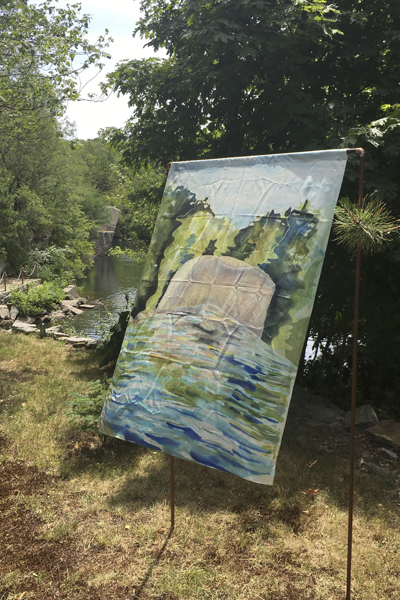
Susan Quateman
978.430.9534 susiequateman@gmail.com
There is a ray of sunshine in the climate change science story, which is being examined by The Nature Conservancy: climate change resilient landscapes. A resilient landscape has enough biological and microclimate diversity so that nature can adapt and survive within a continually changing climate. Happily, the quarry landscapes of Halibut Point, Dogtown and the North Woods area fall into the TNC category of some of the most resilient places within the North Atlantic Coastal region. The varied landforms with steep elevational changes – the rocky coastland, upland forests, and water-covered quarries – create microclimates that provide temperature and moisture options for wildlife and plants. These microclimates buffer the wildlife from the effects of climate change. The undeveloped lands serve as a stronghold for the natural habitats of the quarry landscape, providing a reprieve from some of the effects of global warming.
Resilient Landscapes: Cape Ann Quarries and Marblehead, MA.
Resilient landscapes, as defined by The Nature Conservancy, preserve biodiversity and sustain natural strongholds. They help us endure and survive as humans. But they need care, maintenance and management in order to sustain these special qualities. Unspoiled open spaces and landscapes are part of our legacy to our children and grandchildren.
Resilient landscapes are landscapes that have a chance to survive.

